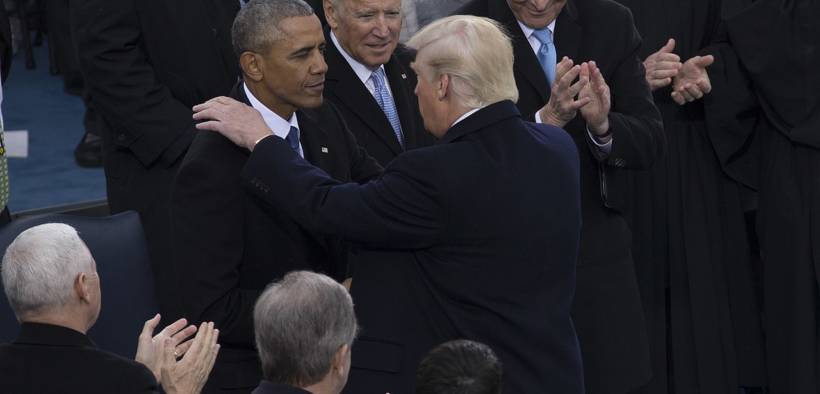The Peculiarity of Choosing a President in 2020

Harry Truman once said that “there is nothing new in the world except the history that you do not know.” With that in mind, one should be reluctant to suggest that the 2020 election will be different from any we have ever seen. Nonetheless, at least three things will make the contest both highly unusual as well as a considerable challenge to analyze in an unemotional, nonpartisan way.
The COVID-19 effect
COVID-19 has limited candidate Biden to network interviews and social media posts from his basement. These formats are not conducive to the articulation of a comprehensive platform. Although his website is encyclopedic in its position detail, it is hard to identify his priorities without more direct oral communication from the candidate.
The Trump and truth effect
COVID-19 is not a limitation that applies to candidate Trump, who is willing to do large rallies, plans a typical inaugural convention, and has access to national networks for press conferences. But despite his visibility, there are still challenges in assessing Trump’s plans for a second term. First, although his website contains a list of first-term accomplishments, it is oddly silent on the future. Secondly, since Trump routinely distorts the truth, we have learned that we can’t reliably learn of his second-term plans by listening to him.
All this means that we should not expect to have a level of debate between the candidates that would be informative and helpful to our decision making.
Emotion trumps rational debate
While all presidential races contain an element of emotionalism, this November may set a new bar. By nature and style, Trump engenders an enormous amount of emotion amongst both supporters and detractors, most of which impedes rational debate.
At least we have their track records
Given all this, how does a person committed to fact-based, nonpartisan analysis approach 2020?
The good news is that both candidates have records that should be good indicators of how they will govern. With respect to Biden, his 47-year record of public service is fairly consistent in approach. Trump’s record is of course much shorter. Despite this, and although he will continue to complicate his communications with distortions of fact, there are consistencies in his record that are reliable indicators of how he too will govern.
Affordable Care Act (ACA): Trump has been consistent in his effort to dismantle the ACA, with his support of the current case before the Supreme Court as the latest example. Biden will just as surely work to reinstate and expand the ACA by adding a public option.
Immigration: Although the track record is mixed, Trump has been consistent in his effort to limit legal immigration, including DACA. While Biden will no doubt reinvigorate DACA, immigration is unlikely to be a focus area for a Biden administration nor will his approach depart in any material way from that of the Obama administration.
Fiscal Responsibility: Neither party or candidate has or will come to grips with federal spending.
Taxes: Trump passed the Tax Cuts and Jobs Act in 2017 and will defend it during a second term. Although Biden has tempered his language since the primaries, his website still includes references to “reversing the excesses of the Trump tax cuts on corporations” and “making the super wealthy pay their fair share.”
Climate Change: Trump exited the Paris Agreement and has issued several executive orders reversing the Obama administration’s climate change initiatives. Biden endorses the Green New Deal as a framework, and has promised to rejoin the Paris Agreement and invest $1.7 trillion in achieving carbon neutrality by 2050.
Gun Control: Trump has been unsupportive of even the smallest gun control measures. Although Biden has articulated a fairly ambitious program, barring the Democrats retaking the Senate, it is unlikely that gun control will get any traction, even with a Democratic president.
Judiciary: Trump has been consistent in his appointment of conservative justices. Biden will be more moderate in his choices, but is likely to have fewer opportunities than Trump has had.
Defense: Trump has been a strong proponent of increased defense spending and has done so in each of his budgets. Biden has historically been more of a hawk on defense than was President Obama and has pledged to “ensure” that we have the strongest military in the world. It is hard to anticipate real differences between the two in this category.
International Relations: Trump has been skeptical of several of the agreements and institutional relationships that he inherited. He withdrew from the Paris Agreement and the Iran nuclear deal, declined to pursue the TPP, and has been critical of NATO, the United Nations, and many individual foreign leaders. Biden’s track record and positions suggest he will conduct a far more conventional and traditional foreign policy and will work to reinstate and strengthen these agreements and institutions.
This is not an exhaustive list, but barring an international crisis or unexpected turn in the course of COVID-19, it includes most of what will be at play on voting day. If so, despite the absence of a conventional campaign and debate, voters should have what they need in order to make a clear choice.







